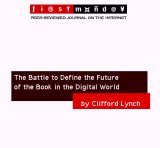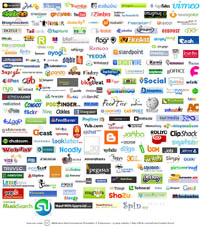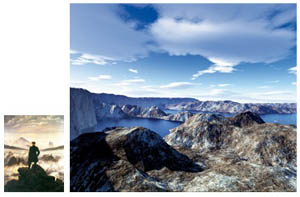—Jack Balkin, from opening plenary
I’m back from the A2K conference. The conference focused on intellectual property regimes and international development issues associated with access to medical, health, science, and technology information. Many of the plenary panels dealt specifically with the international IP regime, currently enshrined in several treaties: WIPO, TRIPS, Berne Convention, (and a few more. More from Ray on those). But many others, instead of relying on the language in the treaties, focused developing new language for advocacy, based on human rights: access to knowledge as an issue of justice and human dignity, not just an issue of intellectual property or infrastructure. The Institute is an advocate of open access, transparency, and sharing, so we have the same mentality as most of the participants, even if we choose to assail the status quo from a grassroots level, rather than the high halls of policy. Most of the discussions and presentations about international IP law were generally outside of the scope of our work, but many of the smaller panels dealt with issues that, for me, illuminated our work in a new light.
In the Peer Production and Education panel, two organizations caught my attention: Taking IT Global and the International Institute for Communication and Development (IICD). Taking IT Global is an international youth community site, notable for its success with cross-cultural projects, and for the fact that it has been translated into seven languages—by volunteers. The IICD trains trainers in Africa. These trainers then go on to help others learn the technological skills necessary to obtain basic information and to empower them to participate in creating information to share.
—Ronaldo Lemos
The ideology of empowerment ran thick in the plenary panels. Ronaldo Lemos, in the Political Economy of A2K, dropped a few figures that showed just how powerful communities outside the scope and target of traditional development can be. He talked about communities at the edge, peripheries, that are using technology to transform cultural production. He dropped a few figures that staggered the crowd: last year Hollywood produced 611 films. But Nigeria, a country with only ONE movie theater (in the whole nation!) released 1200 films. To answer the question of how? No copyright law, inexpensive technology, and low budgets (to say the least). He also mentioned the music industry in Brazil, where cultural production through mainstream corporations is about 52 CDs of Brazilian artists in all genres. In the favelas they are releasing about 400 albums a year. It’s cheaper, and it’s what they want to hear (mostly baile funk).
We also heard the empowerment theme and A2K as “a demand of justice” from Jack Balkin, Yochai Benkler, Nagla Rizk, from Egypt, and from John Howkins, who framed the A2K movement as primarily an issue of freedom to be creative.
The panel on Wireless ICT’s (and the accompanying wiki page) made it abundantly obvious that access isn’t only abut IP law and treaties: it’s also about physical access, computing capacity, and training. This was a continuation of the Network Neutrality panel, and carried through later with a rousing presentation by Onno W. Purbo, on how he has been teaching people to “steal” the last mile infrastructure from the frequencies in the air.
Finally, I went to the Role of Libraries in A2K panel. The panelists spoke on several different topics which were familiar territory for us at the Institute: the role of commercialized information intermediaries (Google, Amazon), fair use exemptions for digital media (including video and audio), the need for Open Access (we only have 15% of peer-reviewed journals available openly), ways to advocate for increased access, better archiving, and enabling A2K in developing countries through libraries.
—The Adelphi Charter
The name of the movement, Access to Knowledge, was chosen because, at the highest levels of international politics, it was the one phrase that everyone supported and no one opposed. It is an undeniable umbrella movement, under which different channels of activism, across multiple disciplines, can marshal their strength. The panelists raised important issues about development and capacity, but with a focus on human rights, justice, and dignity through participation. It was challenging, but reinvigorating, to hear some of our own rhetoric at the Institute repeated in the context of this much larger movement. We at the Institute are concerned with the uses of technology whether that is in the US or internationally, and we’ll continue, in our own way, to embrace development with the goal of creating a future where technology serves to enable human dignity, creativity, and participation.






 Pedro Meyer’s
Pedro Meyer’s 
